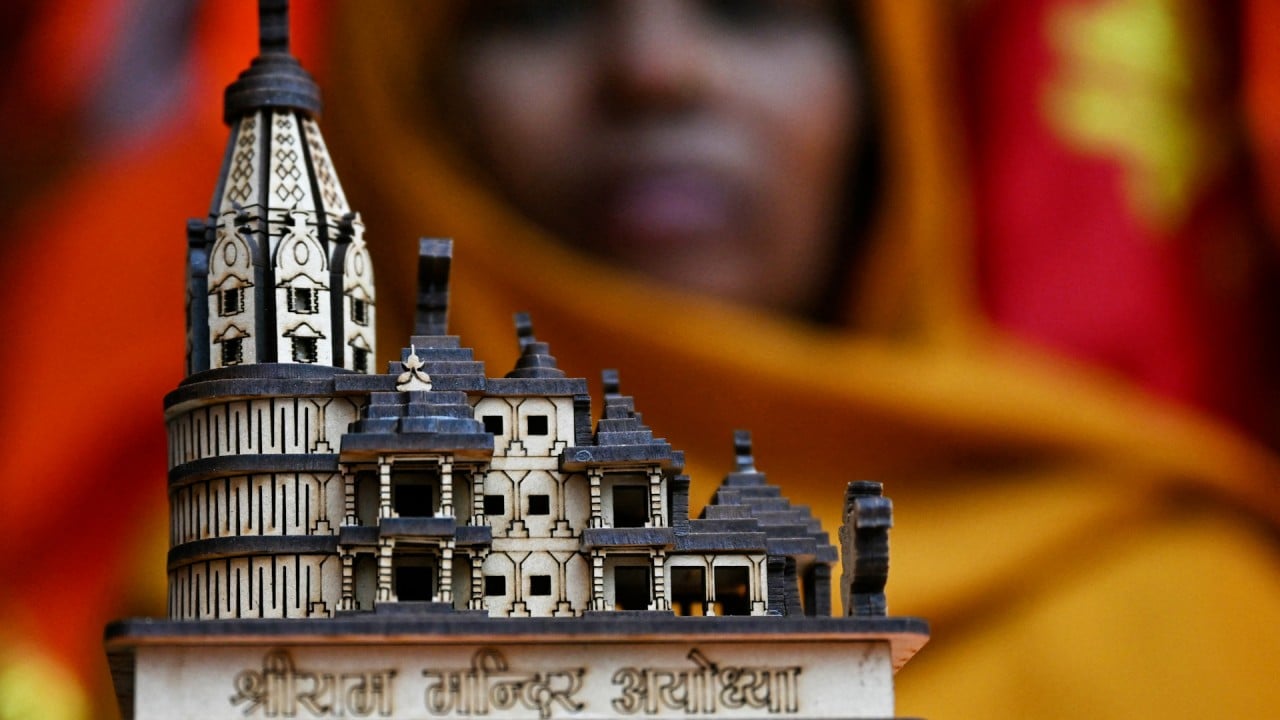But political observers say a sizeable chunk of India’s population is “completely put off by the narrative of communal polarisation” that the BJP promotes – with Congress and the 28 regional parties in its INDIA alliance hoping to tap into that discontent.
Modi’s party needs 272 of the 543 seats in the Lok Sabha, India’s lower house of parliament, to form a government and secured 303 at the last elections in 2019. But this time round, his BJP has set its sights on 370 seats – rising to 400 when its allies in the conservative National Democratic Alliance it leads are included.
BJP veteran Rajnath Singh, 72, who has served as India’s defence minister since 2019 and began his political career in the RSS, insisted in an interview with the Press Trust of India news agency published on May 5 that “the BJP will never change the constitution”, accusing Congress of attempting to garner support “by instilling fear among citizens”.
Secular origins
Congress leaders complained last year after calligraphic copies of India’s original constitution were distributed to members of parliament, with a preamble that did not contain the words “secular” or “socialist” as these were added in later amendments.
“There is a real danger to the constitution,” said Colin Gonsalves, a senior lawyer and founder of the Indian non-profit Human Rights Law Network. “If they [Modi and the BJP] win the elections, it is almost certain they will move towards establishing a Hindu rashtra (nation).”
Members of minority groups “have always been insecure under the present government and with every passing year, they feel even more insecure,” Gonsalves told This Week in Asia.
The Indian state as it stands now, is not secular
The BJP is unlikely “to change the constitution from cover-to-cover” if it wins a renewed mandate in the elections “but there would be amendments which would change the spirit”, said Nilanjan Mukhopadhyay, a writer and journalist with a special interest in Hindu nationalist policies.
“The Indian state as it stands now, is not secular,” said Apoorvanand, a political commentator and professor of Hindi at Delhi University who only goes by one name – referring specifically to “the state apparatus”, while emphasising that on a social level “tolerance still exists in many parts of India”.
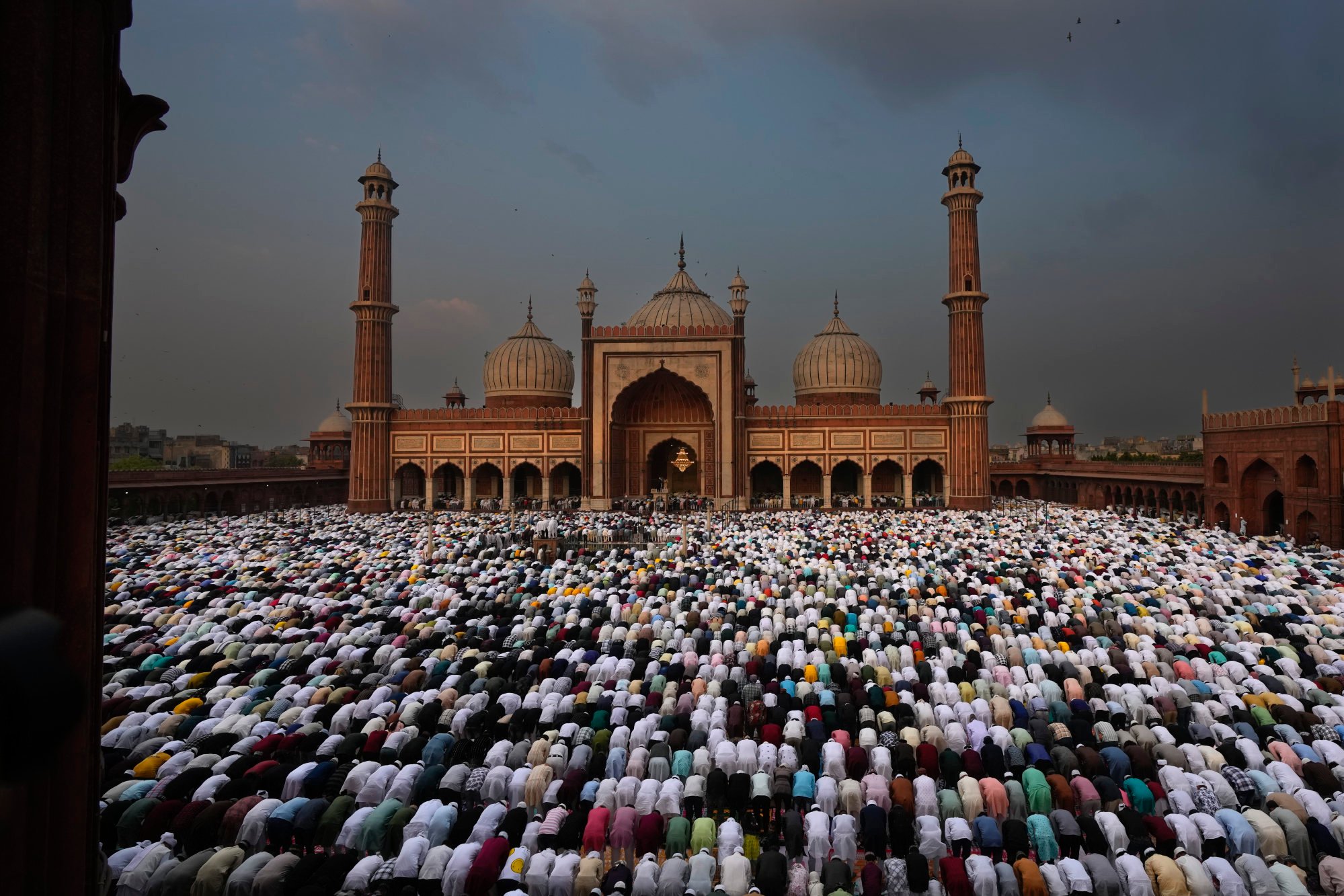
Communal denial
In his constituency of Varanasi on Tuesday, Modi vowed not to exploit the “Hindu-Muslim divide”, telling CNN-News18 he was “shocked” that people assumed he was talking about Muslims when he referenced “those who have more children” in a rally speech last month.
“Even poor Hindu families have this issue,” he told the broadcaster, speaking in Hindi. “I have neither named Hindus nor Muslims”
The prime minister has accused Congress of spreading lies to distract from its own poor track record on poverty, claiming his government has helped nearly 250 million Indians escape extreme poverty over the past nine years – citing data from a government think tank that was set up under his watch. India’s poverty rate has undoubtedly drastically declined under Modi, though some economists have questioned the exact numbers.
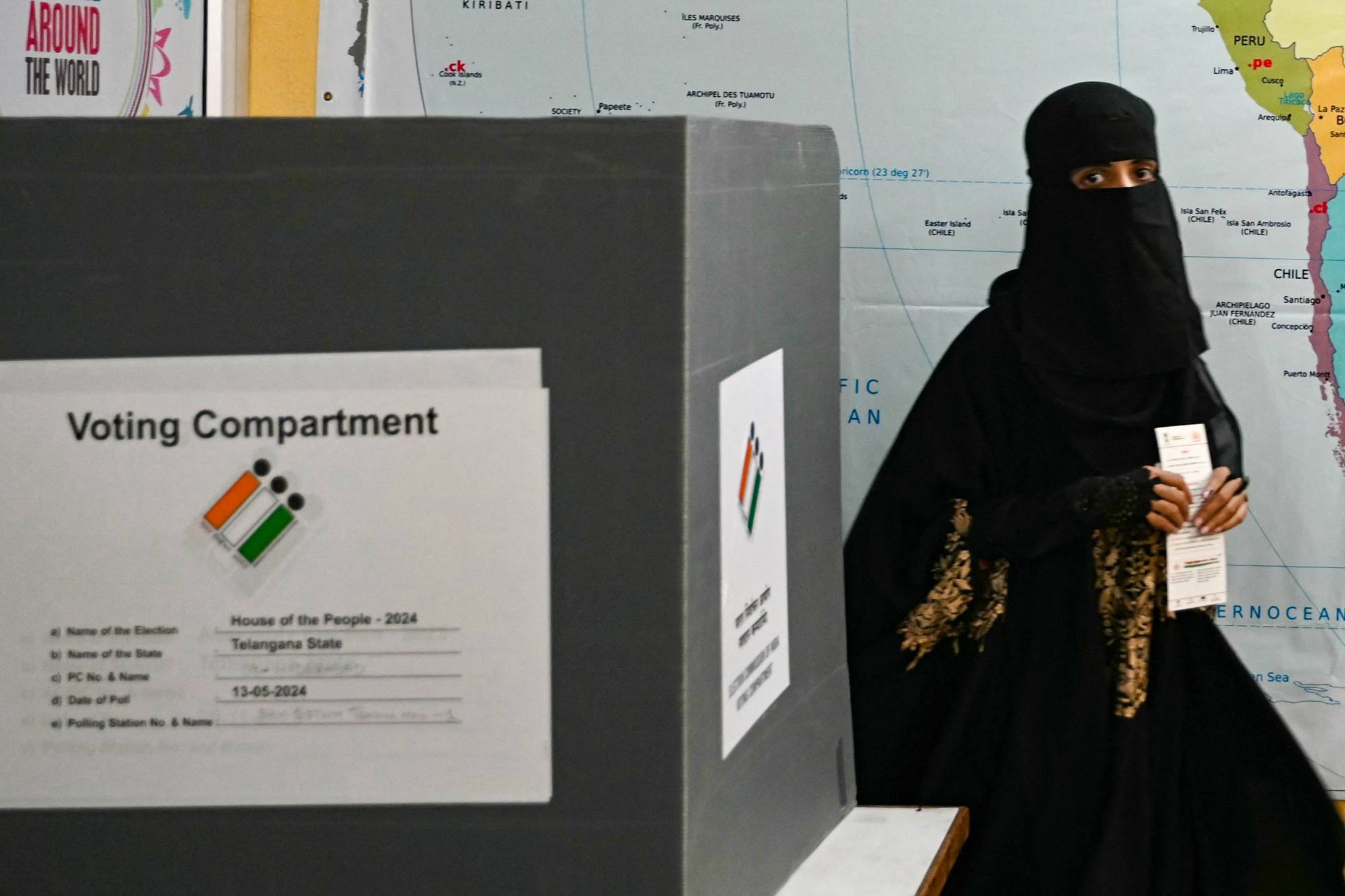
Another issue is a system of affirmative action known in India as “reservations” that aims to provide historically disadvantaged groups representation in education, employment, government schemes, scholarships and politics. Modi has attacked Congress for wanting to distribute these on the basis of religion and to Muslims specifically.
In interviews with This Week in Asia, Indian voters seemed more motivated by the country’s rising cost of living than the prime minister’s religious rhetoric.
“We do not really care about reservations for Muslims, but we want to be left in peace,” said Rehan Ahmed, who owns a metalworking shop a stone’s throw away from the Ram Temple in Ayodhya that he runs with his two sons.
“We know how to fend for ourselves, but Hindu-Muslim issues will only sow distrust,” he said, complaining that rising costs had made life miserable for everybody.
Mohammed Shakeel, a resident of Amethi, said he was puzzled by the talk of reservations as “everybody should be entitled to every benefit, especially if you are poor.”
“There is a large number of Indians who have been completely put off by the narrative of communal polarisation.”
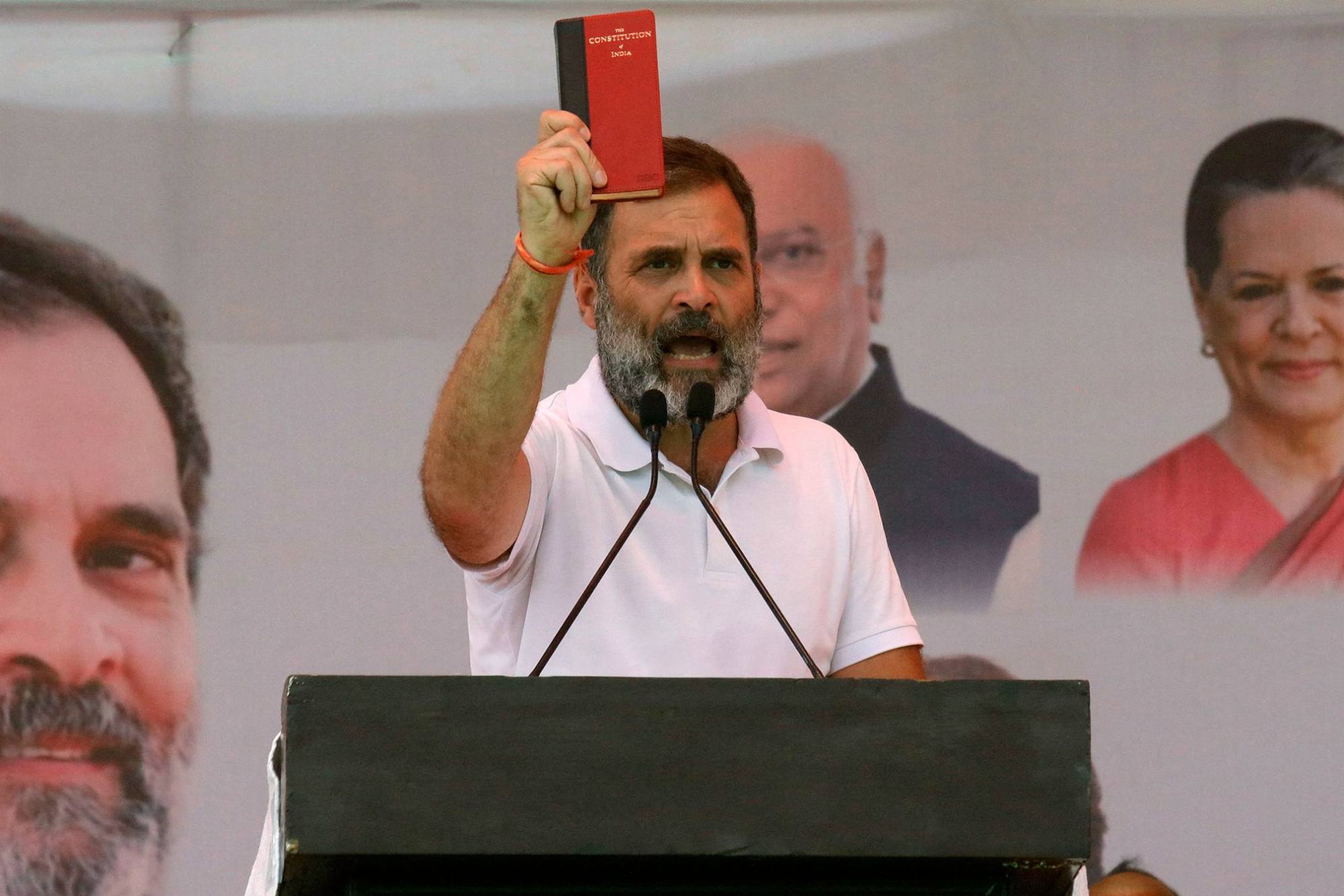
Congress, once the dominant party in Indian politics, has struggled to claw back much of its former influence during the past decade under the BJP. But there are signs that it, its figurehead leader Rahul Gandhi and the INDIA opposition alliance it leads are starting to make inroads with Indian voters who are tired of sectarian politics.
“Definitely the opposition has been able to widen its electoral narrative,” Mukhopadhyay said. “They are doing a reasonably commendable job and posing a very serious challenge to Modi and the BJP.”
“This time the BJP has not set the agenda,” said Sanjal Shastri, an assistant professor of international studies at the western Indian city of Pune’s Flame University, who said that many of the talking points in this election were related to ideas “from the Congress manifesto such as the wealth survey and the caste census”.
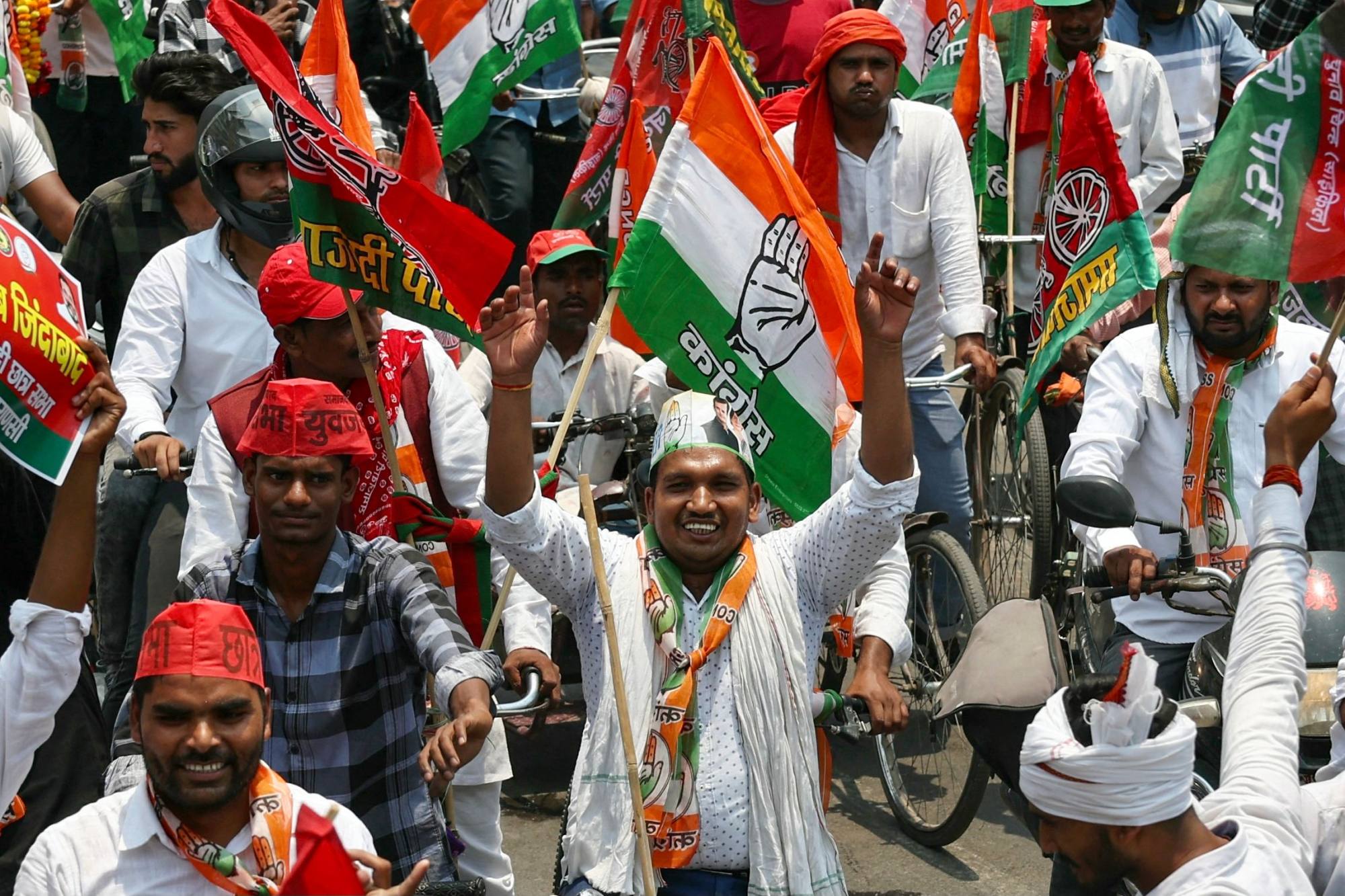
“The BJP has latched onto those,” he said, adding that the ruling party is looking more vulnerable than in previous years.
But the Congress campaign has not been without its controversies, Shastri said – pointing to the case of Sam Pitroda, who resigned as chairman of the party’s overseas arm earlier this month amid accusations of racism for remarks he made on a podcast in the United States.
In an interview that was widely circulated on social media, the Chicago-based Pitroda clumsily commented on India’s diversity by saying: “people in the east look like the Chinese, people in the west look like the Arabs, people in the north look like, maybe, white and people in the south look like Africans. It does not matter. All of us are brothers and sisters.”
A chink in the BJP’s armour?
One indication of the uncertainty can be seen in the volatility of major Indian stock indices, with the benchmark Sensex index, which tracks the Bombay Stock Exchange, falling more than 1,000 points in one day earlier this month on broad-based selling pressure.
But even if the BJP falls far short of its 400-seat target, analysts still expect it to form India’s next government – especially with the support of allied parties – and continue on with its Hindu nationalist agenda, which critics blame for blurring the lines between religion and state as the ideology has become more mainstream.
“We know that the BJP’s politics is based on Hindu majoritarianism, and the RSS has a political objective of a Hindu rashtra,” said Ajay Darshan Behera, an international-studies professor at Jamia Millia Islamia University. “The politics of aggressive Hindutva … has spread fear and insecurity among the Muslims.”
The politics of aggressive Hindutva … has spread fear and insecurity among the Muslims
The BJP maintains that it does not discriminate against minority groups and has impartially distributed government aid and welfare, accusing Congress and its allies of pandering to the “vote bank” formed by Muslims and other groups.
But for many younger Indians, their primary motivation is a brighter future, regardless of which party wins.
“I don’t care whether it is the BJP or Congress which comes to power,” said Neer, a 22-year-old resident of Delhi’s Dakshinpuri neighbourhood, who only gave one name and aspires to join the military. “All it matters is whether the party will advance development and make our lives better.”
In the neighbouring Chirag Delhi area, 30-year-old Sameer Dixit has no time for communal strife.
“Many of our Muslim brothers have sacrificed their lives for the nation,” he said. “We completely respect that.”


